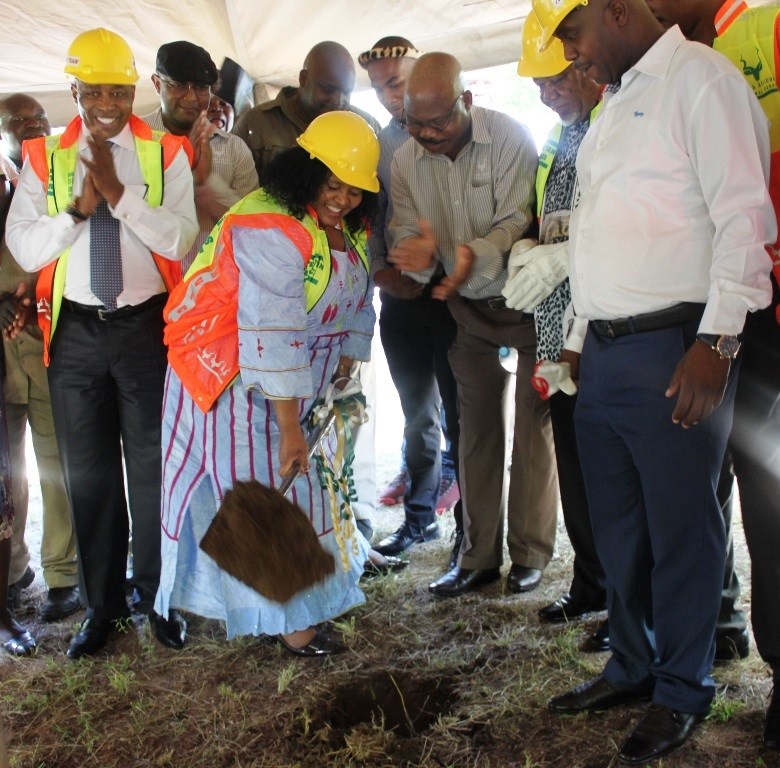
Mketeni said this new development is set to raise KNP’s competitiveness as one of the premier meetings and events destinations in the country. “With this new additional accommodation, we will be able to host various sizes of events, exhibitions, conventions and meetings, while this will also cement the parks international reputation for sustainable business establishments, it will also make a real contribution to job creation during the construction phase and afterward.”
Speaking at the sod turning ceremony, Minister Molewa, said the Kruger National Park is a valued asset to our country. “Therefore any development, as long as it adapts to the key principles of conservation will without any shadow of doubt increase the contribution to the country’s economy and create the much need jobs for people leaving in areas adjacent to this iconic national park.”
In dispelling fears that the new lodge will increase footprint in the KNP, Minister Molewa said, SANParks is mandated in terms of the National Environmental Management: Protected Areas (Act No 57 of 2003), Section 55 (2) (h) to provide accommodation and facilities for visitors, including provision of food and household supplies. “We are, therefore, confident that this facility will not significantly increase the human footprint of the park as plans are underway to ensure that patrons to Skukuza Safari Lodge will either be transported by charter flights or group transport like tour buses.”
She further stated that the development of footprint in the KNP, comprising of tourist facilities, staff housing, tourists roads, support infrastructure and management roads, currently constitutes 6,285 ha or 0.3% of the total of 2,000,000 ha of the park. In terms of international IUCN standards, a park could be developed to 10% of its size. “This means the claims of over-development and over-commercialisation of the Kruger National Park are exaggerated and unfounded.”
The lodge will be developed within the existing camp footprint in an area that is already highly affected by development. Trees within the lodge footprint area will be retained as far as possible, in particular, the planted baobab trees on the South Western border that remain from the old warden house which will be accommodated in the design of the lodge; and there will be a buffer zone between the existing facilities and the Skukuza Safari Lodge development.
Dr Molewa said this Skukuza project will, in total, create between 250 and 300 jobs from conceptualisation, construction, and operational stages. “These jobs are vital in the Lowveld region where unemployment runs up to 70% of the regional population.”
She said government’s policy dictates that because the location of most conservation agencies is in deep rural areas with not many economic opportunities, these agencies must create alternative revenue generation options due to a fact that there are a lot of socio-economic needs government has to look after. “It is for this reason that our national parks should create products that appeal to all sections of our society – as government we are very excited to be part of this milestone.”
The Skukuza Conference Lodge is expected to be a 3-star facility with 128 rooms. The lodge will be located within the existing Skukuza Rest Camp next to the conference centre with the intension of extending itself to the conference delegates.
The full development cost of the Conference Lodge (lodge, bulk services, and staff housing) amounting to R269,5 million, is funded by the Infrastructure Development Grant.